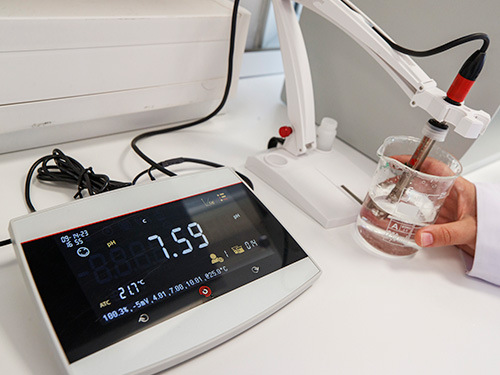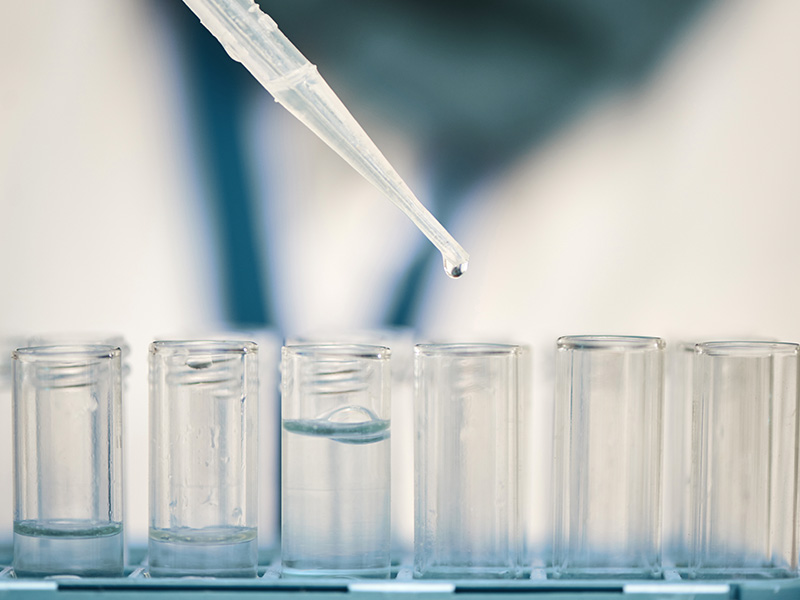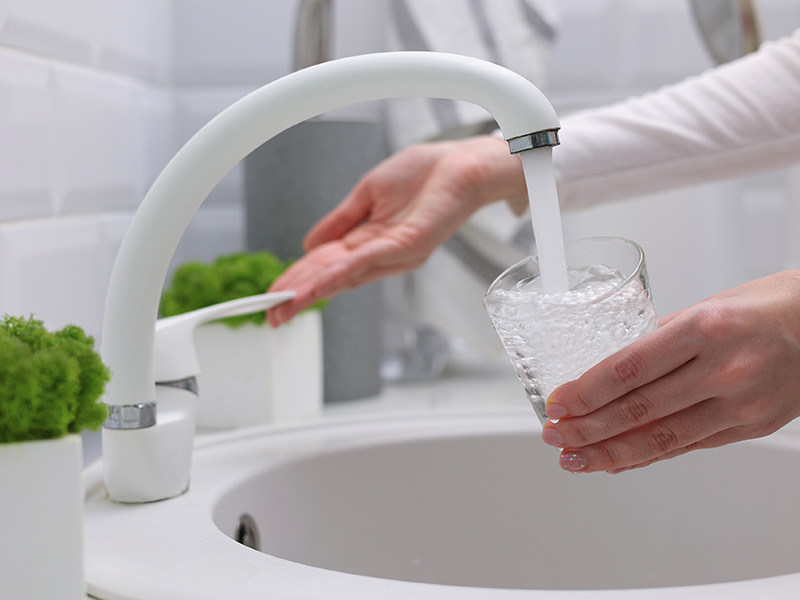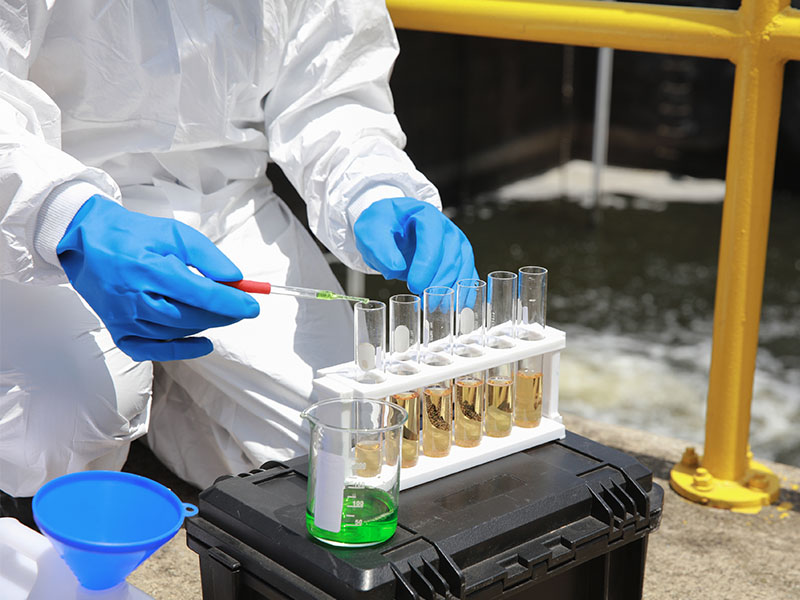When it comes to protecting your home, health, or business from water contamination, reliable water testing is essential. Whether you’re dealing with concerns about buildup on appliances, odd tastes and odors, or consistent digestive issues, understanding exactly what’s in your water is the first step toward safe and effective water treatment.
But here’s the catch: not all water testing labs are created equal. Choosing the wrong one can lead to inaccurate results, wasted time, and expensive solutions that don’t actually solve the problem.
So how can you choose a certified water testing lab you can truly trust? This guide by Innovative Water Solutions Laboratories will help you understand what to look for in a trustworthy lab—and why the right choice can make all the difference in your water quality journey.
Why Water Testing Matters
Before diving into how to choose a lab, it’s worth highlighting why water testing is such a critical first step. Water that appears clear and tastes fine can still contain harmful contaminants like arsenic, nitrates, lead, or bacteria. Even seemingly “minor” issues like high iron or pH imbalance can cause a plethora of issues, including discoloration and plumbing damage.
Effective water treatment solutions—such as filtration and water softening—depend entirely on knowing what you’re treating. Guesswork can lead to over-treatment, under-treatment, or treating the wrong issue altogether. This is why certified lab testing is not just helpful; it’s foundational to any successful water treatment plan.
Characteristics of Reliable Water Testing Labs
Now that you understand the importance of accurate water testing, it’s time to learn what to look for in a lab. There are a number of hallmarks that indicate whether a lab is trustworthy. And choosing the best water testing lab is the only way to ensure that you get actionable results. So let’s dive into the top characteristics to look for.
Certified and Accredited
One of the most important qualifications a water testing lab can have is certification and accreditation. Certified labs follow strict protocols and standards set by regulatory bodies to ensure accurate, consistent, and verifiable results. When a lab is certified, it means its equipment is calibrated, its methods are approved, and its analysts are qualified to handle and assess water samples.
For homeowners and businesses alike, this translates to accurate water quality results. It means you’re not just getting a generic test strip or a one-size-fits-all kit. Instead, you’re getting a detailed, trustworthy analysis that can inform real solutions.
Always look for labs certified by your state’s Department of Environmental Protection or accredited through agencies like the National Environmental Laboratory Accreditation Program (NELAP).
Water Treatment Solutions are the Goal
Not all water testing labs perform testing with the goal of water treatment in mind. Many labs are geared toward industrial compliance or environmental monitoring, which often means their testing packages are not designed for the unique needs of homeowners or businesses. While these labs can deliver raw data, they may not provide the practical insights you need to understand what’s really in your water and how to address it.
It’s important to look for a lab that specializes in residential and commercial water quality. A lab that serves these markets will not only test for common concerns like hardness, pH, and contaminants, but will also explain how your results impact your home and safety. For example, knowing that your water contains high levels of iron or coliform bacteria is useful—but understanding what that means for your family’s health, plumbing system, and appliances is even more valuable.
The best water testing labs go a step further by offering actionable guidance. Instead of leaving you with a list of technical terms, they interpret your results in plain language and outline treatment options when needed. Some labs even work in partnership with water treatment companies, ensuring a seamless progression from testing to solution. This means you’re not just identifying problems—you’re taking the next step toward cleaner, safer, and better-tasting water.
By selecting a lab that focuses on pairing water quality results with expert recommendations, you gain more than just numbers on a report. You gain a trusted partner who is invested in helping you protect your family and home.
Offers a Comprehensive Range of Tests
When evaluating a water testing lab, it’s also important to look closely at the range of contaminants they screen for. A reputable lab should provide multiple testing panels tailored to your specific water source and concerns. For instance, private well owners often require a more extensive set of tests than those relying on treated municipal water.
At a minimum, basic testing should check for common contaminants such as bacteria, nitrates, hardness, and pH levels. More advanced testing panels can go further, detecting issues like volatile organic compounds (VOCs), heavy metals, PFAS (“forever chemicals”), and even radon.
The best labs don’t just run tests—they guide you in choosing the right ones. Rather than upselling unnecessary or costly options, they will recommend tests based on the symptoms you are experiencing and that cover concerns commonly found in your area. This ensures you get accurate, meaningful results that directly connect to your water quality and health.
Reliable Sample Collection Methods
Proper water sample collection is just as critical as the laboratory analysis itself. Even the most advanced technology cannot deliver accurate results if the sample is mishandled and contaminated. This step directly impacts the reliability of your water quality report.
Reputable water testing labs provide you with clear, step-by-step instructions for collecting water samples. Depending on the test, samples may need to be drawn from specific taps, taken at certain times of day, or stored with specialized preservation materials. In some cases, certified technicians may visit your home or business to collect samples directly, minimizing the risk of errors.
Choosing a lab that emphasizes reliable sample collection means your results will be trustworthy, actionable, and fully representative of your water supply. This added assurance helps protect both your health and your investment in water treatment solutions.
Turnaround Time and Reporting Quality
When it comes to water safety, timing can be critical. A trustworthy water testing lab should be transparent about its turnaround times and deliver results promptly—without cutting corners. Whether you’re addressing a sudden water quality concern or scheduling routine testing, efficiency helps you to take action faster.
However, speed alone isn’t enough. The quality of the report plays an equally important role. Look for labs that provide results in clear, easy-to-read formats, complete with actionable insights and straightforward explanations. Instead of leaving you to decode technical terms, a good lab translates data into practical guidance for your home or business.
The best labs combine fast results with high-quality reporting, ensuring you not only get answers quickly but also understand exactly what steps to take to protect your water supply and health.
Transparency and Reputation
A certified water testing lab should be upfront from the start about its methods, pricing, and services. Avoid labs that are vague about what’s included in your testing package, how samples are collected and handled, or what type of support you’ll receive after the report is delivered. Hidden fees, unclear processes, or generic promises are all red flags that you shouldn’t brush off.
Equally important is the lab’s reputation. Take the time to research online reviews, testimonials, and case studies, which can provide valuable insights into customer experiences. A reputable lab will have a track record of accuracy, reliability, and responsive service. Don’t hesitate to ask if they have experience working with clients who share your specific water concerns—whether that’s private well testing, municipal water issues, or advanced contaminant detection.
Local Knowledge Makes a Big Difference
Water quality issues are rarely one-size-fits-all—they often depend heavily on your location. Rural communities may face agricultural runoff or septic system problems, while urban areas often deal with aging pipes, lead concerns, or disinfection byproducts. In certain regions, naturally occurring minerals, arsenic, or hardness can also create unique challenges for homeowners and businesses alike.
Working with a local water testing lab, or one with strong regional expertise, can give you a major advantage. These labs understand the most common water problems in your area and can recommend the right testing panels to identify them. They may also have established relationships with local health departments, environmental agencies, or water treatment providers, which helps streamline the process of addressing regulatory requirements and finding effective solutions.
Choose IWSL with Confidence
Innovative Water Solutions Laboratories offers more than test results—we provide expert analysis, clear explanations, and actionable results that you can trust. Our certified testing panels cover everything from bacteria and nitrates to PFAS and other contaminants that affect both residential and commercial water systems.
What makes IWSL different is our blend of scientific accuracy and hands-on expertise in water treatment. We go beyond identifying contaminants to guide you toward practical solutions tailored to your specific water source. With transparent pricing, easy-to-read reports, and a focus on customer support, you’ll always know what your results mean and how to address them.
Whether you’re a homeowner wanting to ensure your drinking water is safe or a business looking for water quality answers, we’re here to help. Contact IWSL today to schedule professional water testing and get one step closer to cleaner, safer water.





